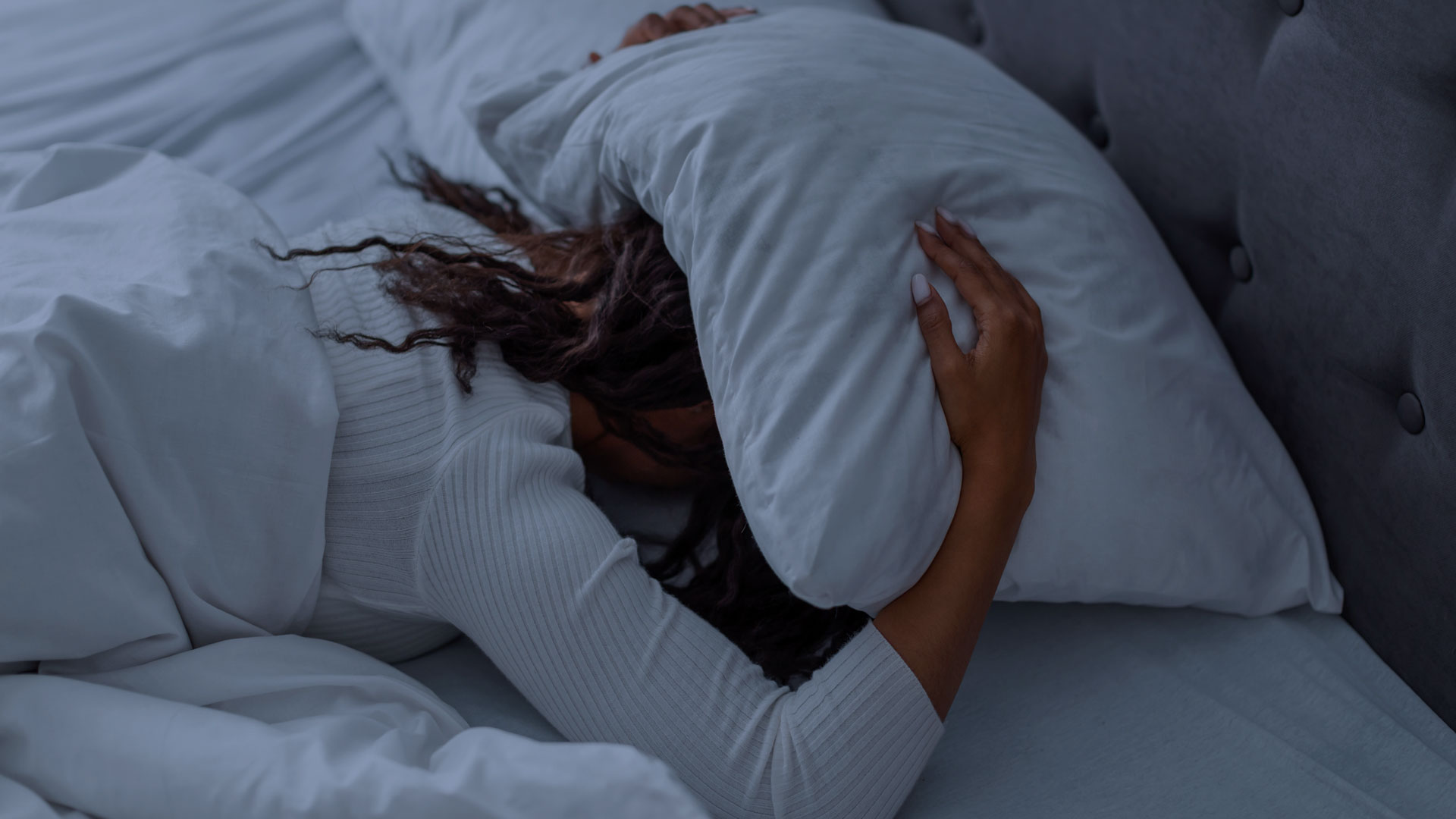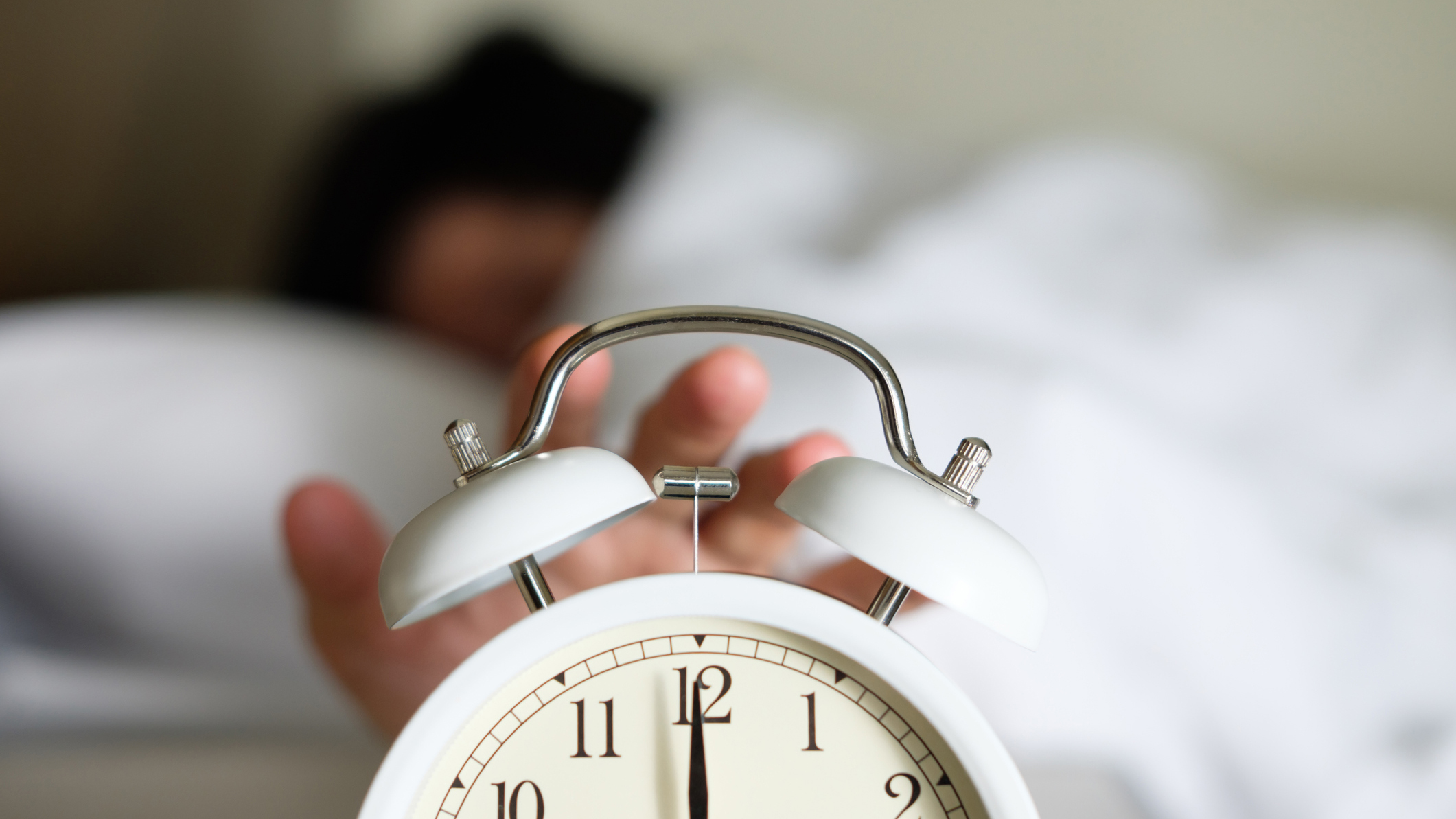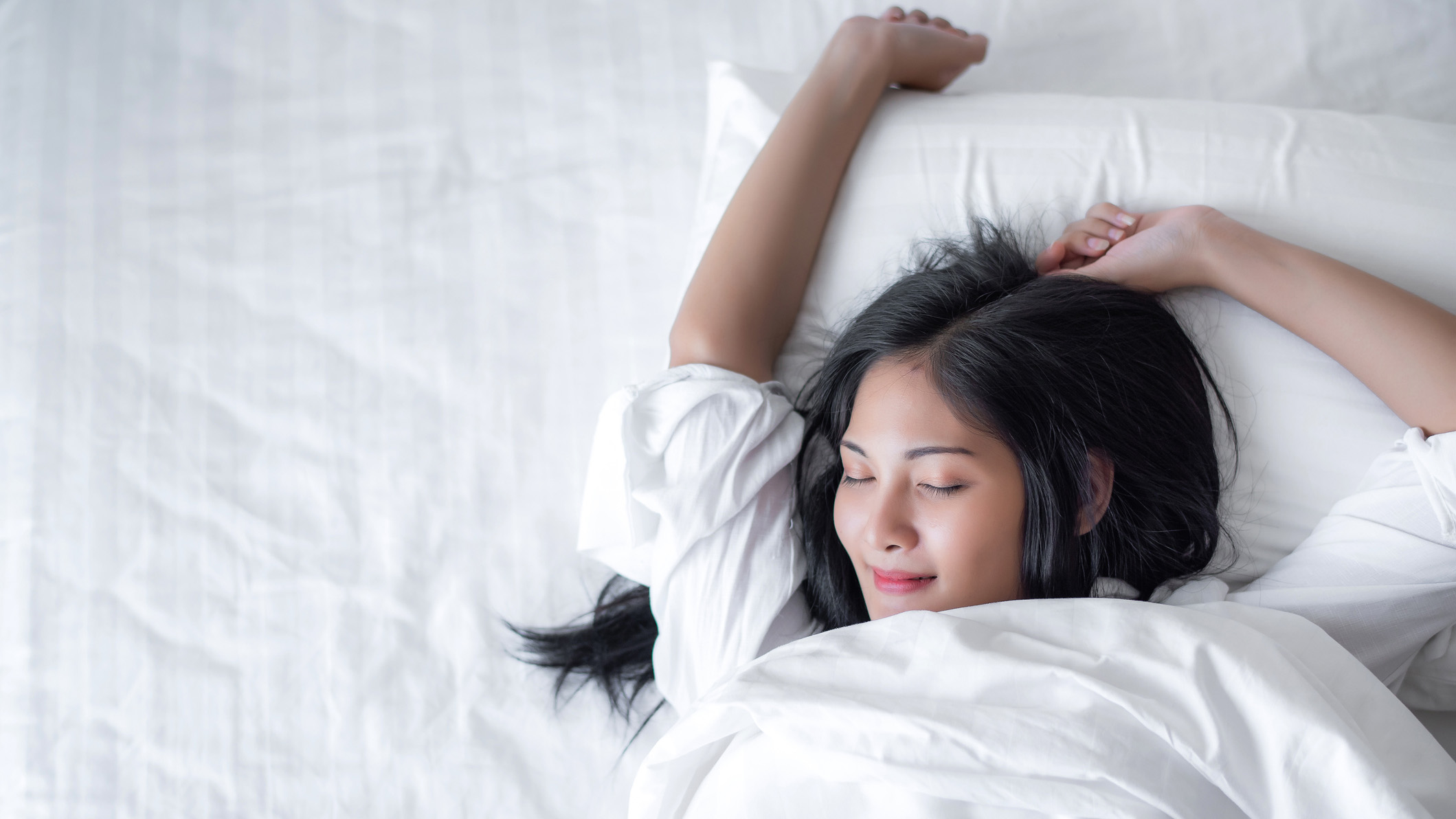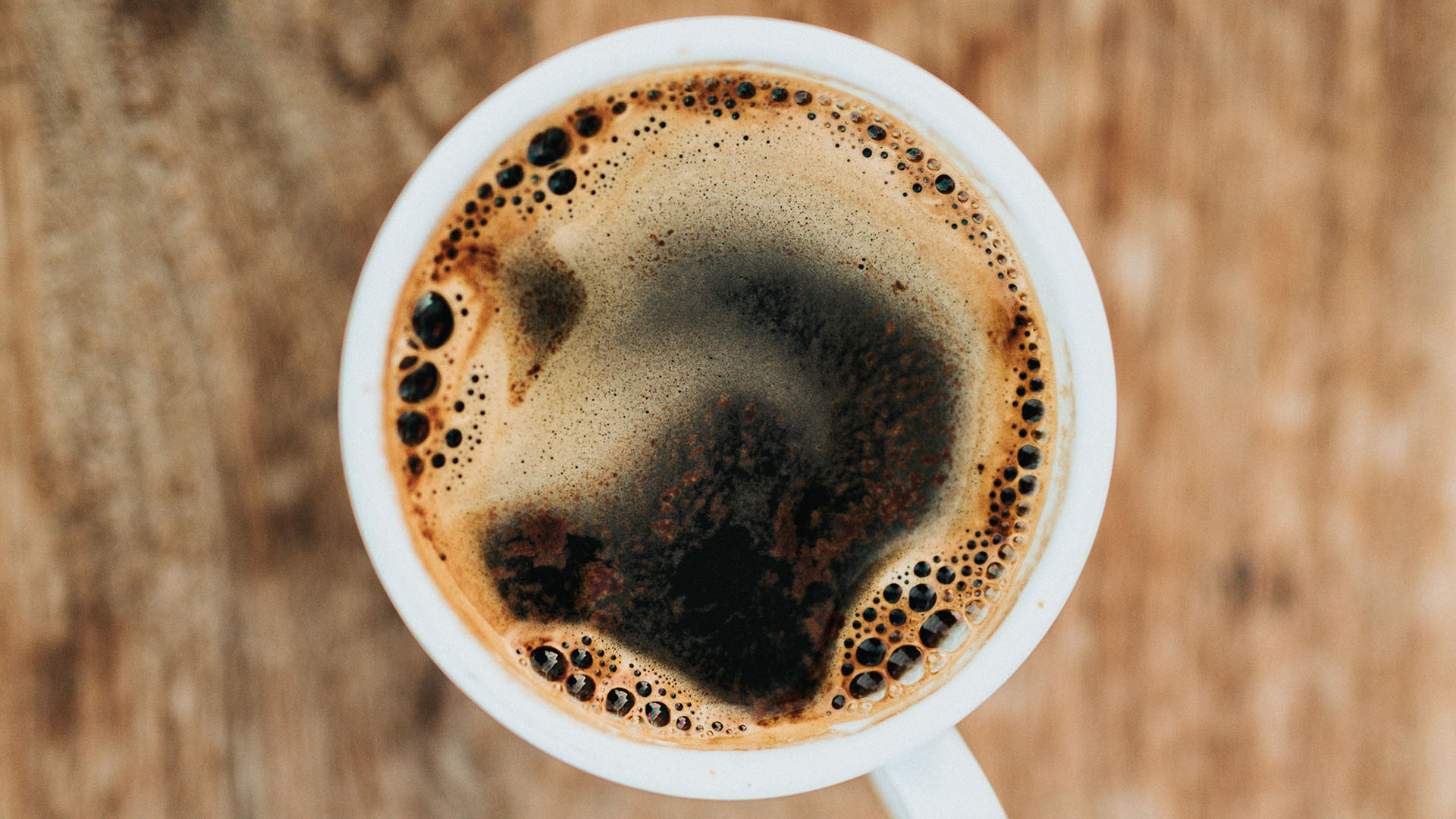6 ways to make it easier to get out of bed when it's still dark out
Struggling to drag yourself out of bed? Here's how to ease the pain of winter wakeups

Getting out of bed is a struggle at the best of times, but when it's still dark outside, it can feel all the more difficult. Switching to an 8-hour day during the winter months is probably not a practical solution, so we asked a sleep expert for their tips on improving the pain of winter wakeup calls.
Plus, find out the pros and cons of buying blackout curtains.
1. Stick to your usual sleep schedule
Don't be tempted to shift your alarm time to a little later – it'll only make things worse, says Theresa Schnorbach, sleep scientist and resident expert at Emma (the brand behind one of the best mattresses around). "Consistent bed and wake-up times enable your body to 'learn' this pattern, helping it to produce the right hormones to encourage sleeping and waking," she explains. "Despite how dark it may be outside, a regular sleep schedule will always make it easier to wake up."
Theresa's recommendation is to maintain your schedule even across the weekends, but we'll leave that one with you.

2. Up your vitamin D intake
We get vitamin D from sunlight, and during the short winter days this takes a big hit. Studies suggest a lack of vitamin D can lead to insufficient sleep, which might be why you're feeling especially tired on wintry mornings. There are other ways to book your vitamin D intake – you'll find it in foods like salmon, eggs, or enriched mushrooms. Or you can take the easy route and opt for a vitamin D supplement.
3. Trick your body with a sunrise alarm clock
As soothing as the aggressive bleep of a phone alarm is, an alternative that's particularly suited to winter mornings is the wake-up light (also known as a sunrise clock). These mimic the sunrise by gradually brightening over a set period of time, with the aim of gently rousing you from your slumber.
One of the reasons why shorter days can mess up your sleep so much is to do with circadian rhythms – the physical, mental, and behavioral changes that occur over the course of a day, and which are dictated primarily by light and darkness. "Sunlight suppresses our natural production of melatonin in the morning, and darkness increases," explains Theresa. "When it is totally dark, we lose the strong wake-up cue that sunlight gives us, which leads us to battle biology in order to switch into alertness."
Get instant access to breaking news, the hottest reviews, great deals and helpful tips.
A sunrise alarm means you'll wake up to a softly lit room, rather than total darkness. "These lights can positively affect your circadian rhythm, prompting your body to slow down melatonin production, which allows a boost in your alertness in the morning," she adds. "A previous study showed that using sunrise alarm clocks to lighten up your room 30 minutes before your wake-up time may reduce grogginess upon awakening."

4. Embrace the H20
One low-budget, super-simple way to boost alertness on a cold winter's morn is to pour yourself a glass of water. "Drinking a glass of cold water as soon as you wake up refreshes and rehydrates your body, speeds up your metabolism and increases alertness," says Theresa.
5. … or get on the coffee
Water not cutting it? Time to break out the coffee. "There's no denying it: coffee wakes you up better than any other beverage out there, and it's not just because of its caffeine content," says Theresa. "Coffee actually increases your levels of cortisol, which makes you feel more alert and awake."
If you aren't a fan of coffee, a good alternative is green tea. As well as giving you a caffeine kick, it also contains theanine – an amino acid that helps reduce stress and boost your mood. "It also increases dopamine levels in your brain, which is a chemical that makes you feel happy and energised," adds Theresa.

6. Bite the bullet and get out of bed
As unappealing as removing yourself from the cosy cocoon of your bedclothes might be, by hanging around in bed after your alarm has gone off, you're only making things worse for yourself. "This may sound simple, but the more time you spend in bed after waking up, the longer it will take you to feel alert," explains Theresa. She recommends getting out of bed and kicking off your morning routine as quickly as possible. And all the better if that routine is somewhat active. "Physical activity has the power to regulate the hormones linked to your circadian rhythm and ignite feel-good endorphins that will help your outlook on the day ahead."
For more information and tips on better sleep, take a look at the Emma Up app, available for free on all app stores.
Next: Here's how to FaceTime in the dark with Memoji.

Theresa Schnorbach is a psychologist and sleep scientist, specialized in Clinical Psychology and Cognitive Neuropsychology. She has completed post-graduate training in Cognitive Behavioural Therapy for Insomnia (CBT-I) with the German Sleep Society (DGSM), endorsed by the European Research Society. She works as a sleep specialist for bed brand Emma.

Ruth is currently Homes Editor on Tom's Guide's sister site TechRadar, where she reviews and writes about everything from air fryers to vacuum cleaners to coffee machines, as well as the latest smart home gadgets. Prior to making the shift to Homes, Ruth was Tom's Guide's Sleep Editor. A certified Sleep Science Coach, she has tested more mattresses than her small flat can handle and will talk at length about them to anyone who shows even a passing interest.
 Club Benefits
Club Benefits





